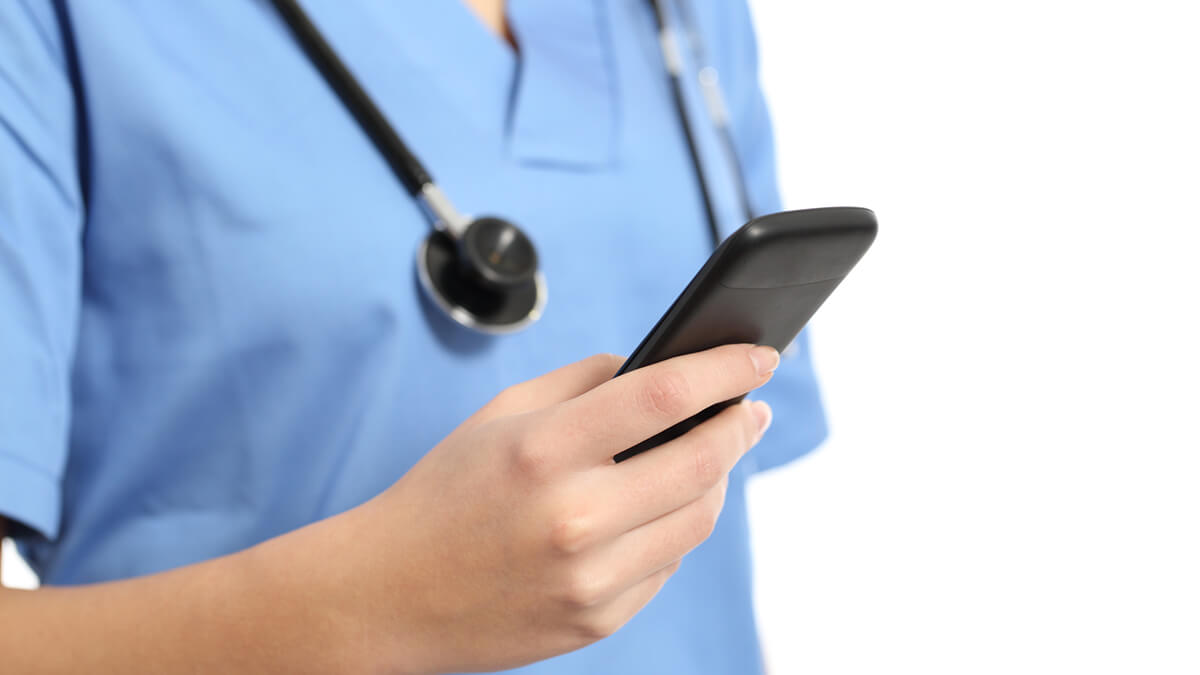There was a time when the most impressive technology you could find in a hospital were pagers and pulse oximeters. Now, technology fills every corner of every hospital and impacts patients and healthcare workers alike. If you’re new to nursing and thinking of earning your Bachelor of Science in Nursing (BSN), the program will expose you to a variety of current technology. And, you’ll need to be prepared to embrace new technologies as they arrive.
Here are five tech advancements you should be familiar with.
Electronic Healthcare Records (EHRs)
The era of paper charts is over. Currently, 96% of U.S. hospitals use EHRs,* but basic adoption is just the first step. In the years to come, EHRs will evolve to allow for better transfer of information between medical providers, creating more opportunities for healthcare workers to manage patients’ whole health. For nurses, it won’t be enough to simply know how to enter data into an EHR; you will be expected to fully understand the data and know how to use it to better counsel and care for your patients.
Communication Systems
New smartphone apps can allow nurses to easily communicate with each other and receive real-time information about patient vitals and alarms. These apps can alert you the moment a fellow nurse or patient needs you, improving efficiencies and response times.
Wireless communication innovations are also giving nurses point-of care technology that lets them access x-rays, lab results, and other medical information from the patient room or anywhere else. This technology can even let you reach another nurse or a doctor for an opinion, without leaving the patient’s bedside.
Diagnostic Tools
Traditionally, most diagnostic tests require some form of invasive procedure, such as a blood draw. But new technology is reducing or eliminating the invasiveness of these tests. The less invasive a procedure, the lower the likelihood that the patient suffers a complication like an infection. Additionally, patients are more likely to be compliant when presented with non-invasive diagnostic tools.
Treatments
What once seemed like science fiction is quickly becoming the everyday. Already, nurses need familiarity with everything from high-tech wound care machines to tech-driven drug delivery systems. In the years to come, it’s likely nurses will also need a working understanding of gene therapies that can treat illness, organic 3-D printing that can create human tissue, biomechanical devices that can replace limbs, and robots that can aid in patient care. And those are just a few of the medical technologies likely to be invented/perfected in the coming years and decades.
Online Education
By 2026, the U.S. is expected to add over 438,000 new positions for RNs,† and that’s not even counting positions for nurse practitioners; nurse educators; and those in nursing management, nurse informatics, and public health. What’s more, the National Academy of Medicine wants 80% of the nursing workforce to hold a Bachelor of Science in Nursing (BSN)degree by 2020.‡ Filling so many jobs and helping current RNs earn their BSN degree will require nursing schools to accommodate a huge influx of students. Fortunately, online universities are providing the technology that will help meet the demand.
An online university doesn’t require lots of physical space to operate and can reach nurses around the world. Additionally, online learning makes it more convenient for nurses to earn nursing degrees while they continue to work full time. That’s true whether you want to enroll in an RN to BSN program or whether you want to go a step further and earn your Master of Science in Nursing (MSN) degree, either through a standard online MSN program or through an RN to MSN program. Choosing an RN to BSN online program, an RN to MSN online program, or a standard master’s in nursing online program requires you to consider your education and nursing career goals. But no matter which online nursing program you choose, you’ll be able to complete a majority of your coursework from home and on a flexible schedule designed to allow you to keep working while you learn.
Online nursing schools are making becoming a nurse more possible for more people. It’s just one more technological innovation that’s changing the nursing profession. And with an online RN to BSN program or an online MSN program, online learning can also be the innovation that changes your life.
Walden University is an accredited institution offering an online Master of Science in Nursing program and an RN to BSN Bachelor of Science in Nursing program. Expand your career options and earn your degree in a convenient, flexible format that fits your busy life.
*J. Conn, Hospitals achieve 96% EHR Adoption Rate; Data Exchange Still Needs Work. Modern Healthcare, on the internet at www.modernhealthcare.com/article/20160531/NEWS/160539990.
†Bureau of Labor Statistics, Registered Nurses, Occupational Outlook Handbook, on the internet at https://www.bls.gov/ooh/healthcare/registered-nurses.htm#tab-6.
‡Nelson, Lee, Report: 80% of Nursing Workforce Should Have a BSN by 2020, Nurse.org, on the internet at http://nurse.org/articles/155/BSN-initiative-80-2020.
Walden University is accredited by The Higher Learning Commission, www.hlcommission.org.




